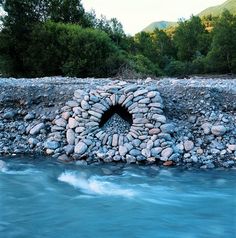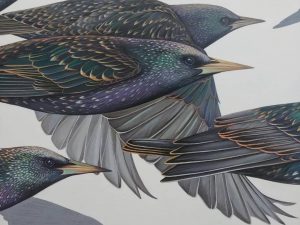 The Yogabliss, Your Heart Life on-line Moving into Meditation classes met this morning. We practiced a number of ways to cultivate empathy for the more-than-human world. Our amazing faculties of mind enabled us to imagine, feel, sense and move as if we were an other being.
The Yogabliss, Your Heart Life on-line Moving into Meditation classes met this morning. We practiced a number of ways to cultivate empathy for the more-than-human world. Our amazing faculties of mind enabled us to imagine, feel, sense and move as if we were an other being.
Zen poet and teacher, Thich Nhat Hanh, invited us to imagine our bodies as rivers.
Poet Laura Grace Heldon described a Riverbank Ceremony in which we could whisper our secrets to the water. She has a remarkable collection of writings from her experience which “includes teaching nonviolence, writing collaborative poetry with nursing home residents [and] facilitating support groups for abuse survivors.”
We drew inspiration from Sophie Strand’s essay Kaleidoscopic Empathy. She describes how we can imagine ourselves to be more-than-human beings. In this way we might deepen care for our earthly kin. Sophie’s publications “focus on the intersection of spirituality, storytelling, and ecology. But it would probably be more authentic to call her a neo-troubadour animist with a propensity to spin yarns that inevitably turn into love stories.”
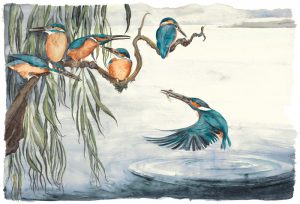 Lisa Couturier’s poem, Inheritance, invites us to imagine ourselves as birds. She asks what it would be like to inherit the inner knowing of how and where to migrate. Lisa’s writings draw our hearts and minds to care for the natural world.
Lisa Couturier’s poem, Inheritance, invites us to imagine ourselves as birds. She asks what it would be like to inherit the inner knowing of how and where to migrate. Lisa’s writings draw our hearts and minds to care for the natural world.
I invite you to explore the experience of solidity or stability in your body. Bones. Muscles. Tissues. You might rock your sit bones from side to side and feel them settle. Or run your tongue across your teeth. Try squeezing your hand into a fist and then let it go, relax and soften. Begin to explore the experience of flow in your body. You might place a hand over your heart and feel its quiet rhythm. Perhaps you can imagine the flow of oxygen and nutrients pulsing from your heart. The fluids bathing your cells, inside, outside. And there is the meandering river of sensation flowing, vibrating, tingling, expanding and relaxing. What is surfacing in your experience?
Zen poet and peace activist, Thich Nhat Hanh writes:
Our body is a river in which every cell is a drop of water, and all of them are in constant transformation and movement. There is also a river of feelings in us, in which every feeling is a drop of water. Each of these feelings – pleasant, unpleasant, neutral – relies on all other feelings to be born, mature, and disappear.
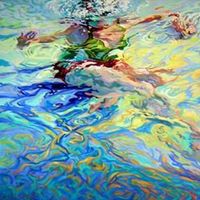 A river of feeling runs through us. Joy, grief, calm. Feelings flow one into another moment by moment. We can feel the current sometimes as a pull, a ripple, a wave. We can feel emotion in our heart beat, our body temperature, our breathing. Mindfulness invites curiosity and openness. What happens when we soften our grasp or relax our pushing away? We might stop trying to control that which cannot be controlled.
A river of feeling runs through us. Joy, grief, calm. Feelings flow one into another moment by moment. We can feel the current sometimes as a pull, a ripple, a wave. We can feel emotion in our heart beat, our body temperature, our breathing. Mindfulness invites curiosity and openness. What happens when we soften our grasp or relax our pushing away? We might stop trying to control that which cannot be controlled.
Like breathing we let go of this breath in order to receive the next breath. Just as the in-breath travels through our bodies, the out-breath travels through the world. We breathe in relationship with the world. We touch and are touched, see and are seen, hear and are heard, feel and are felt. We are embedded and entangled in this great web of life. We are not alone. In her Riverbank Ceremony, Laura Grace Weldon invites us to:
Step out on mossy water’s-edge rock,
let the river’s rush take you
beyond yourself.
When you’re ready, kneel,
and select a secret
from the heavy chandelier
inside your chest.
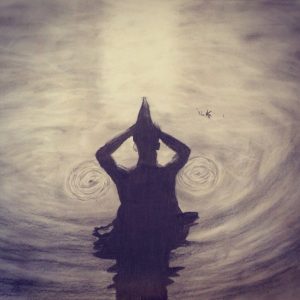 Whisper it to the water.
Whisper it to the water.
She will carry it in her molecules
around the bend, out of sight.
Your secret will
steam from tea sipped in Vietnam,
slide down an antelope’s throat
trickle from a glacier in Greenland,
hurl from cumulonimbus clouds
onto cobbled streets in Belgium,
trill through secret underground paths,
rise up a redwood’s trunk,
turn into a silver helix
twisting from your bathroom faucet,
translucent, transformed,
washing over you.
May we kneel and whisper our secrets to the river. Imagine where they will travel. May let the river take us beyond ourselves.
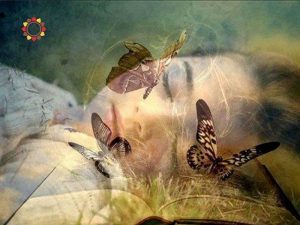 I invite you to truly rest your body on Earth’s body. Feel muscles, tendons, ligaments and bones begin to settle. Allow yourself to explore, relax. Can you let your body be a river in which every cell is a drop of water, and all of them are moving and changing?
I invite you to truly rest your body on Earth’s body. Feel muscles, tendons, ligaments and bones begin to settle. Allow yourself to explore, relax. Can you let your body be a river in which every cell is a drop of water, and all of them are moving and changing?
You might sense the river of feelings, in which every feeling is a drop of water. Each of these feelings relies on all other feelings to be born, move and change. Can you release yourself into the river? Can you touch and be touched by joy or sadness and let them move and change?
In her essay, Kaleidoscopic Empathy, Sophie Strand writes:
. . . The best thing for being sad is interrupting your individuality. . . . using our imaginative muscle for greater empathy. . . . I think, in fact, it is the most important skill for . . . anyone anguished by escalating extinctions and ecological collapse. . . . The best thing for being sad is practicing being more-than-human. . . . Why not. . . practice empathic plasticity?
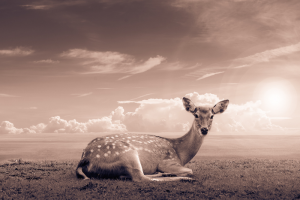 Imagine a more-than-human being in your life. You could start with something close to you – your dog or cat, a bird in your backyard. Can you inhabit their body, the way they see and hear, move and rest, eat and drink? Who or what draws their attention? How do they express happiness or affection? There is no need to be perfect or correct, let yourself play. Notice how and where awareness moves as it touches more-than-human beings. Can we listen and learn from their stories?
Imagine a more-than-human being in your life. You could start with something close to you – your dog or cat, a bird in your backyard. Can you inhabit their body, the way they see and hear, move and rest, eat and drink? Who or what draws their attention? How do they express happiness or affection? There is no need to be perfect or correct, let yourself play. Notice how and where awareness moves as it touches more-than-human beings. Can we listen and learn from their stories?
Sophie suggests:
Practice, whenever you enter into a forest, or go on a walk, or sit by a river, pouring yourself into the mind of every bird, fly, bumble bee, bindweed, grub you see. Center yourself in the wind-buoyed swiftness of the kestrel . . . slip into the shadow of the sturgeon below the river surface . . .
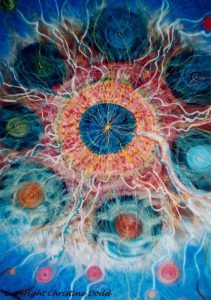 As in mindfulness practice, can we hold this exploration in a caring way? Imagine the microbes living in your belly and the trees exhaling the air you breathe. We can be human only in this deeply intimate kinship. Imagine the many ways we can deepen our care and respect for the family of plants, rivers, mountains, animals and others with whom we share our earth home.
As in mindfulness practice, can we hold this exploration in a caring way? Imagine the microbes living in your belly and the trees exhaling the air you breathe. We can be human only in this deeply intimate kinship. Imagine the many ways we can deepen our care and respect for the family of plants, rivers, mountains, animals and others with whom we share our earth home.
Here is Lisa Couturier’s poem of imagining, Inheritance:
Children, suppose you
were born as birds.
Inside your hearts as
capable as magnets
would hover memories
oall the birds who
came before you.
Birds who were guided
by certain stars, rivers, coastlines,
the winds of mountain passes
and fields that must be flown
over to return home,
before they ever left
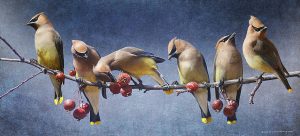 That is, if you were birds
That is, if you were birds
and I was your mother
and you fledged
and I abandoned you to flight,
you would find your way back
despite never being taught,
though not necessarily to me.

